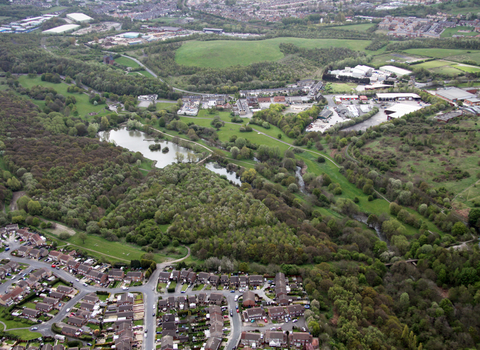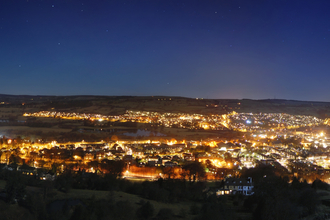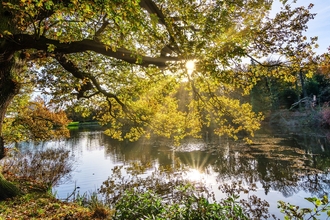We work with forward-thinking developers who want to enhance biodiversity and our connection with nature as part of their developments.
What is the Building with Nature Accreditation scheme?
Building with Nature developed a set of standards which define high quality green infrastructure at each stage of the development process, from planning and design through to long-term management and maintenance. The standards are based on evidence and good practice and aim to assist with the planning and development of new places and communities.
The result of a collaboration between Gloucestershire Wildlife Trust (GWT) and the University of the West of England (UWE), it emerged from the need to have a proactive approach to nature-friendly development. It was co-developed with users and potential beneficiaries - local authorities, private sector developers and citizens – and has been tested, proven and refined in multiple locations.
Wholly owned by Gloucestershire Wildlife Trust, Building with Nature champions best practice to mainstream green infrastructure in place-making in the UK, raising the bar for industry and maximising benefits for both people and the natural world.
How can developers get involved?
Developers can apply to have their scheme assessed, and planners can apply to have their policy document accredited by Building with Nature. Awards are offered at both pre- and post-construction stages, to highlight what good looks like at each stage of the green infrastructure lifecycle. Applications can be for any size of development.
Accredited schemes which are signed off post-completion will be invited to apply for a Building with Nature National Award. This is an opportunity to showcase development where we can see people and wildlife benefiting from well-designed, expertly implemented and sustainably managed features.
How Yorkshire Wildlife Trust can help
Our Conservation Planning Officers are now fully trained Building with Nature Assessors and hope to work with developers across Yorkshire to raise the bar for development in our local areas.
If you are interested in having your scheme assessed, please contact us on info@ywt.org.uk.
Visit Building with Nature's website
What is biodiversity net gain?
Biodiversity net gain in development is defined as “development that leaves biodiversity in a better state than before”.
The National Planning Policy Framework (NPPF) states that planning policy should identify and pursue opportunities for securing measurable gains for biodiversity. This is a strong recommendation, but this policy remains ‘should do’ guidance only.
One of The Wildlife Trusts’ strategic aims is to make it normal for all housing, commercial and infrastructure development to contribute positively to nature’s recovery on land and at sea. Biodiversity net gain, implemented in the right way, is hugely important in helping to achieve The Wildlife Trusts’ ambition of protecting 30% of land and sea for nature by 2030.
What's next for planning policy?
In her speech in December 2019, the Queen announced the development of a new Environment Bill. This Bill will include a mandatory biodiversity net gain requirement in England, which developers will need to provide and maintain for at least 30 years. Biodiversity net gains will be measured using a biodiversity metric that has been developed by Defra (Department for Environment, Food and Rural Affairs).
The Bill also requires relevant authorities to ‘conserve and enhance’ biodiversity through the creation of Local Nature Recovery Strategies, strengthening previous policy. There are currently no broad exemptions from this requirement, other than permitted developments and householder extensions.
The Bill is anticipated to be approved in early 2021 with a two-year transition period before it is enforced. The Wildlife Trusts nationally have responded to consultations on how the requirement should be implemented and we continue to work with Local Planning Authorities to help them understand our vision.




